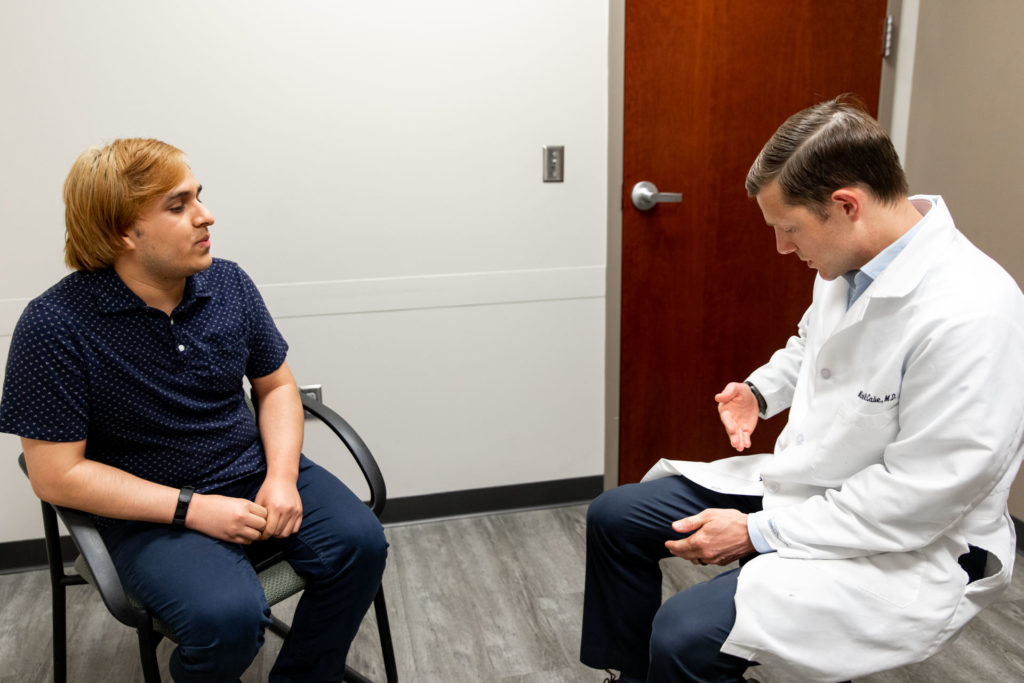
Thinking about having a total hip replacement in Kansas City?
The physicians at Apex Orthopedics & Sports Medicine have extensive training and offer expertise in total hip replacements.

Let us help guide you through the process and answer some typical questions regarding total hip replacement surgery.
There are An estimated 300,000 total hip procedures in the United States per year, making it a common, safe and successful procedure, but what causes so many to need a hip replacement?
The hip is one of the body’s largest joints and works as a ball and socket. The head of the femur is the ball, and rides in the acetabulum of the pelvis; which functions as the socket. Articular cartilage covers the surfaces of the bones. This allows the bones to move and rotate easily together in multiple planes. Osteoarthritis occurs as this cartilage begins to wear down. A total hip arthroplasty, or more commonly known as a total hip replacement, is an elective surgical procedure performed on hip joints to alleviate the pain caused by arthritis. Therefore, it helps you regain your quality of life and improve function. Other diseases, such as rheumatoid arthritis, traumas, neoplasms, and osteonecrosis may lead to a hip replacement as well.
What can you expect during a total hip replacement?
During this surgical procedure, we put the patients under anesthesia. In addition, we make an incision so that the hip joint easily accessible. We make the socket of the joint smooth through a process called reaming and remove the head of the femur. We replace the damaged articular surfaces with prosthetic materials to allow pain free movement and enhanced function. The entire surgery from the first incision until we completely dress the wound with surgical bandages takes about an hour and a half.
How long is your hospital stay and what sort of post-operative care should you expect with a total hip replacement?
Some patients may stay overnight in the hospital after a total hip replacement, and some patients are candidates for outpatient surgery. We determine outpatient surgery by age, insurance, pain control and clearance from a physical therapist. Upon discharge, we give patients a walker to aid in ambulation immediately following surgery. At follow-up appointments, we check the incision and an X-ray. This is to ensure proper alignment of the new hip. Patients can expect to start physical therapy quickly after we release them from the hospital or surgery center. Outpatient physical therapy, or occasionally home health physical therapy, help post-operative patients get range of motion and strength back. We continue to follow the patient periodically for a year post-operatively, then patients are seen yearly or every other year for X-ray surveillance.
What sort of medication will you have to take with a total hip replacement?
We give pain medication to help alleviate the discomfort of surgery. Patients are also put on an anticoagulant medication (like aspirin) to prevent deep vein thrombosis, a blood clot that is a risk of most orthopedic surgeries.
More questions? Contact us or schedule an appointment with Dr. Abraham or Dr. Clymer today to learn more about whether or not a total hip replacement is right for you.


